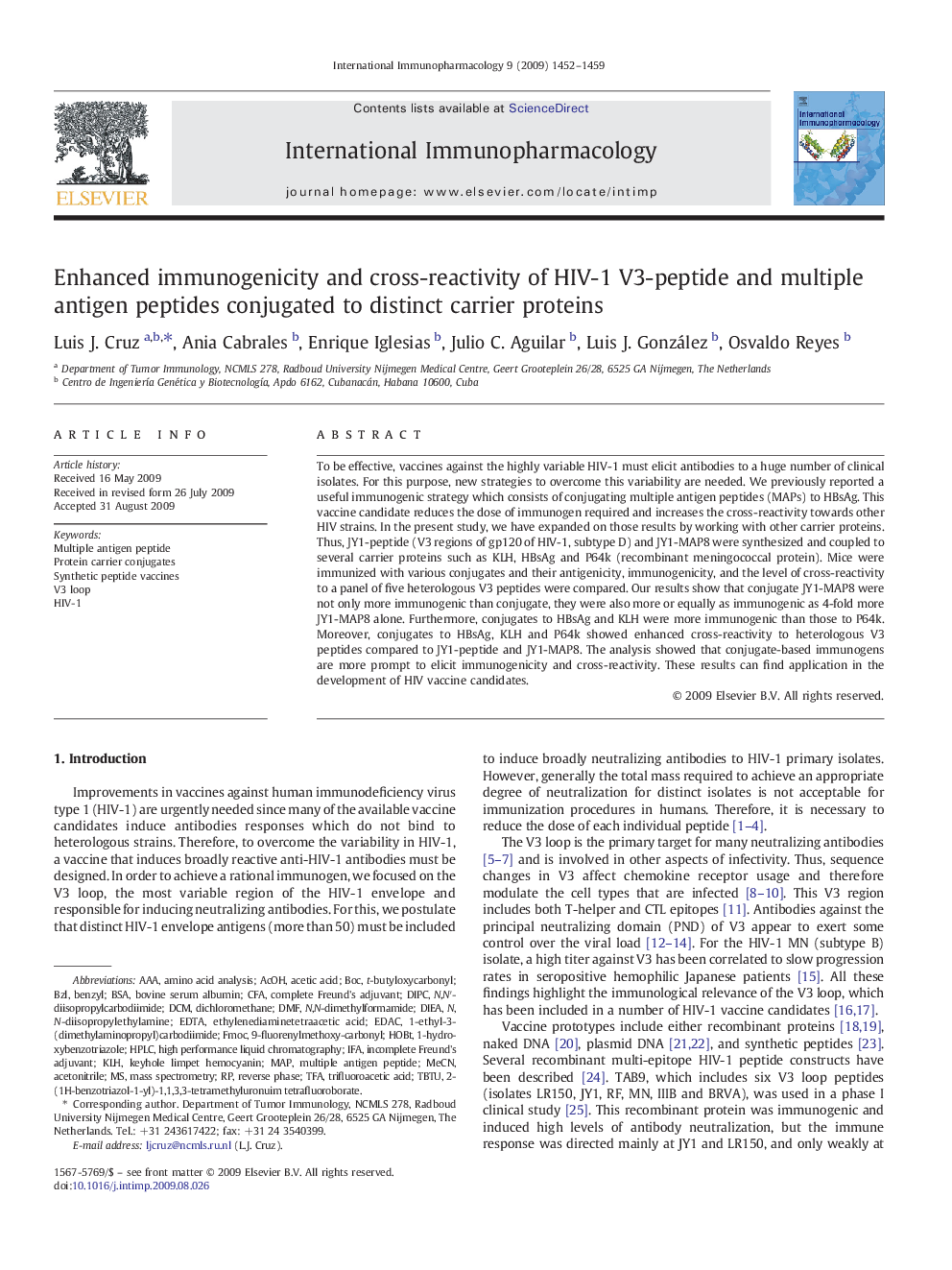| Article ID | Journal | Published Year | Pages | File Type |
|---|---|---|---|---|
| 2541480 | International Immunopharmacology | 2009 | 8 Pages |
To be effective, vaccines against the highly variable HIV-1 must elicit antibodies to a huge number of clinical isolates. For this purpose, new strategies to overcome this variability are needed. We previously reported a useful immunogenic strategy which consists of conjugating multiple antigen peptides (MAPs) to HBsAg. This vaccine candidate reduces the dose of immunogen required and increases the cross-reactivity towards other HIV strains. In the present study, we have expanded on those results by working with other carrier proteins. Thus, JY1-peptide (V3 regions of gp120 of HIV-1, subtype D) and JY1-MAP8 were synthesized and coupled to several carrier proteins such as KLH, HBsAg and P64k (recombinant meningococcal protein). Mice were immunized with various conjugates and their antigenicity, immunogenicity, and the level of cross-reactivity to a panel of five heterologous V3 peptides were compared. Our results show that conjugate JY1-MAP8 were not only more immunogenic than conjugate, they were also more or equally as immunogenic as 4-fold more JY1-MAP8 alone. Furthermore, conjugates to HBsAg and KLH were more immunogenic than those to P64k. Moreover, conjugates to HBsAg, KLH and P64k showed enhanced cross-reactivity to heterologous V3 peptides compared to JY1-peptide and JY1-MAP8. The analysis showed that conjugate-based immunogens are more prompt to elicit immunogenicity and cross-reactivity. These results can find application in the development of HIV vaccine candidates.
